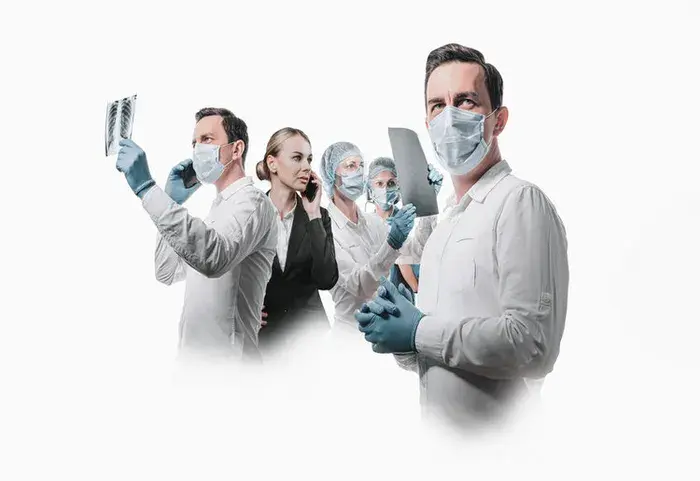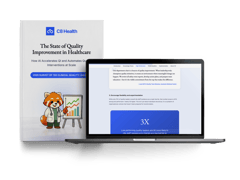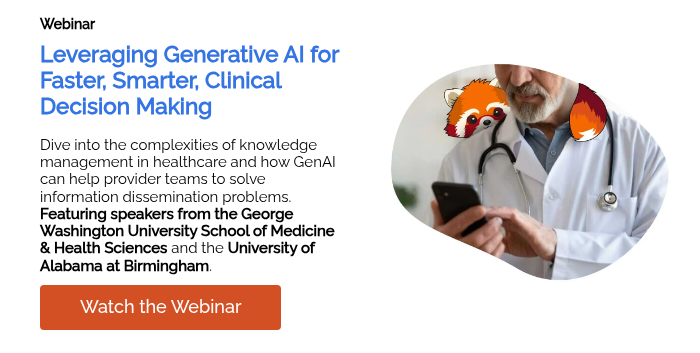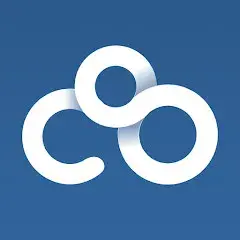
Knowledge Management in Healthcare: Harnessing Information Successfully
To make informed decisions, clinicians require extensive information-medical history, symptoms, medication usage, laboratory tests, and more. This knowledge is crucial not only for diagnosis but also for determining the most appropriate course of action for each patient. In this blog, we explore the challenges of knowledge management in healthcare and how to successfully navigate this complex landscape of professional information.
» Tired of searching through endless information to find helpful protocols? Organize it with C8 Health.

The Complex Journey of Healthcare Decision-Making
The typical healthcare decision-making process makes the role of medical guidance its cornerstone. This means including the following steps:
- Knowledge gathering: Healthcare professionals engage directly with patients, conducting interviews and preliminary diagnoses, diligently exploring their health history and concerns.
- Research: Healthcare professionals gather relevant information, including the latest medical research, guidelines, and best practices related to the patient's condition.
- Medical guidance application: Subsequently, healthcare professionals employ experience and expertise to analyze patient information, including test results, lab reports, X-rays, and more. This astute analysis forms the bedrock of an informed diagnosis.
- Dissemination of results: The healthcare professional discusses the diagnosis with the patient and makes sure they fully comprehend their medical situation through clear and empathetic communication.
- Making the decision: Drawing on their knowledge and the comprehensive information at their disposal, healthcare professionals exercise their judgment to make informed decisions regarding the most suitable course of action for the patient's well-being. This decision is heavily influenced by medical guidance, ensuring the highest standard of care for the patient.
At every step of this process, the guiding hand of medical expertise rooted in evidence-based practices leads the way. This ensures that healthcare decisions are rooted in an understanding of the patient's needs and the most current medical knowledge available.
However, the reality isn't always as clear-cut. Healthcare professionals are expected to make life-saving decisions on a daily basis. Since lives are literally at stake, there are various factors they must take into consideration before making a decision as any of these factors can create vastly different outcomes. For example:
- Prescribing medication that doesn't cause any adverse effects when taken together with the patient's current medication.
- Making critical decisions in an emergency situation where there's limited time, a lot of pressure, and unknown variables.
Clinicians must carefully weigh these factors and make well-informed decisions to provide the best possible care for their patients, taking into account the individual's unique circumstances and needs.
AI-driven knowledge management platforms can help streamline these decisions, helping clinicians make faster, more accurate decisions. Watch our latest webinar to learn more.
Challenges in Managing Healthcare Knowledge
The crux of the matter is that clinicians rely heavily on the information available to them to make the right decisions. This means this information has to be accurate, readily accessible, and relevant to their workplace.
1. Accuracy
From a clinician's perspective, there are four crucial characteristics that determine the utility of any piece of information:
- You need to know who vetted the information, establishing credibility.
- Understand when the information was vetted, verifying its timeliness.
- Ascertain whether the information is still relevant and not obsolete.
- Determine if it's pertinent to your specific point of care, because treatments can vary even within the same hospital.
However, there are currently no systems that effectively ensure all these four characteristics exist for every piece of information. Digitizing healthcare services and information is a recent investment that remains incomplete across many healthcare systems.
2. Access
Accessing accurate and relevant clinical guidance is just as essential as producing it. Challenges to accessing this guidance include:
- Content fragmentation: Clinical guidance is often dispersed across different systems and formats, making it difficult to locate and use.
- Interoperability issues: Incompatibility between health IT platforms hinders information sharing and communication between healthcare providers.
- Information overload: Clinicians may face overwhelming volumes of medical information, including test results, clinical notes, and a plethora of information and knowledge sources for medical guidance. Without locally vetted protocols clinicians can trust, it becomes challenging to prioritize, extract relevant information, and make evidence-based decisions.
- Consistency: Information can be fragmented and outdated, resulting in different healthcare providers following different protocols. This leads to inconsistencies in care delivery.
Failing to access critical clinical guidance due to its dispersion across various protocols and systems can lead to critical errors in decision-making. This information gap often forces clinicians to rely on outdated knowledge or seek advice from others, both of which are time-consuming and prone to inaccuracies.
To address this challenge, we need a solution that ensures easy access to accurate and relevant knowledge and guidelines.
Our Solution: Top-Down Centralized Knowledge Management
C8 Health offers a flexible approach to knowledge management that caters to healthcare systems, hospitals, departments, and specific units within departments. We provide centralized knowledge management, ensuring that locally vetted best practices are easily accessible and relevant to specific care settings. This means:
- Information at your fingertips as you can install the application on your phone.
- AI-powered search allows you to retrieve any item within seconds.
- Easily update any information and instantly notify other users of changes.
- Personalize your communication channels to your specialty and position.
- Analyze advanced analytics on content consumption and engagement.
Here's how Dr. Daniel Katz (Vice Chair of Education, Department of Anesthesia, Mount Sinai) has experienced C8 Health's platform:
Key Takeaways for Healthcare Professionals
In navigating healthcare information successfully for improved patient outcomes, healthcare professionals should focus on:
- Access to knowledge: Ensure easy access to knowledge and evidence-based information to support informed decision-making.
- Protocol dissemination: Advocate for the efficient dissemination of protocols and guidelines to reach those who need them most.
- Quality management: Promote the quality management of healthcare content to ensure accuracy and relevance.
- Standardization and adaptation: Set a balance between standardizing care processes and accommodating site-specific requirements.
Better Healthcare Delivery, Better Patient Outcomes
Since healthcare is always evolving, it's crucial to manage clinical guidance in a way that ensures informed decision-making. By addressing the challenges in accessing, disseminating, and managing knowledge, we can empower healthcare professionals to provide the best possible care to their patients. As the future unfolds, emerging technologies and trends will further enhance the way we navigate clinical guidance and knowledge, ultimately leading to improved patient outcomes and a more efficient healthcare system.


